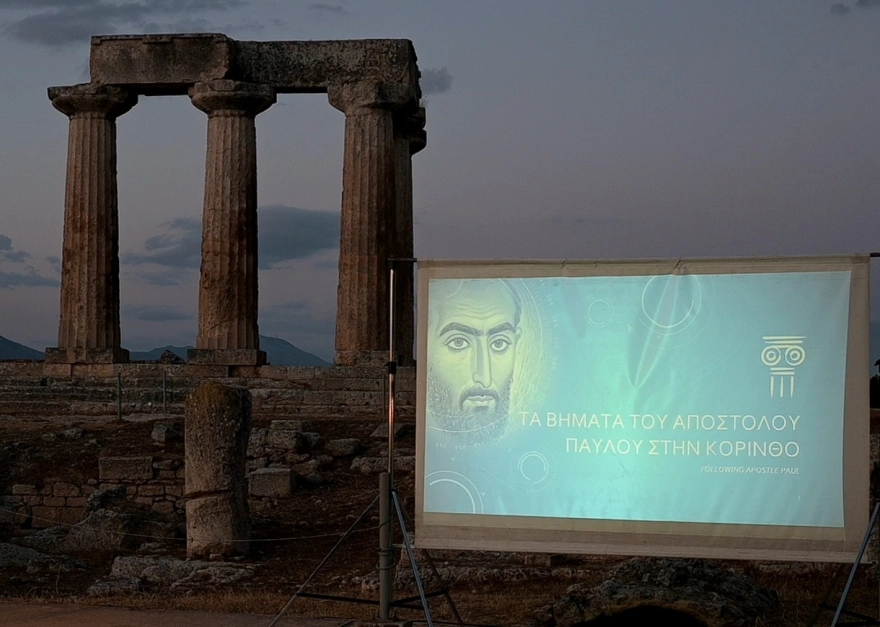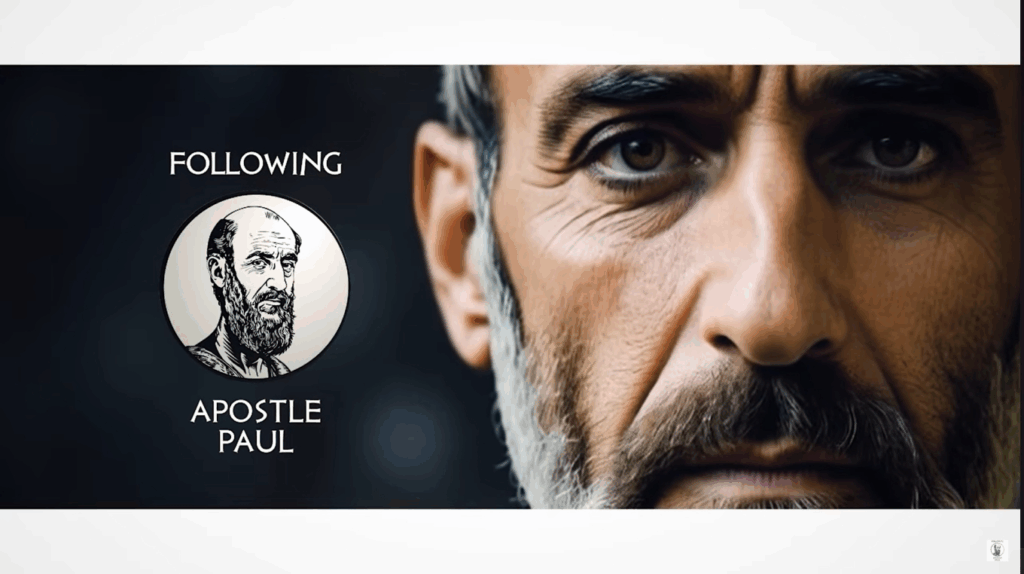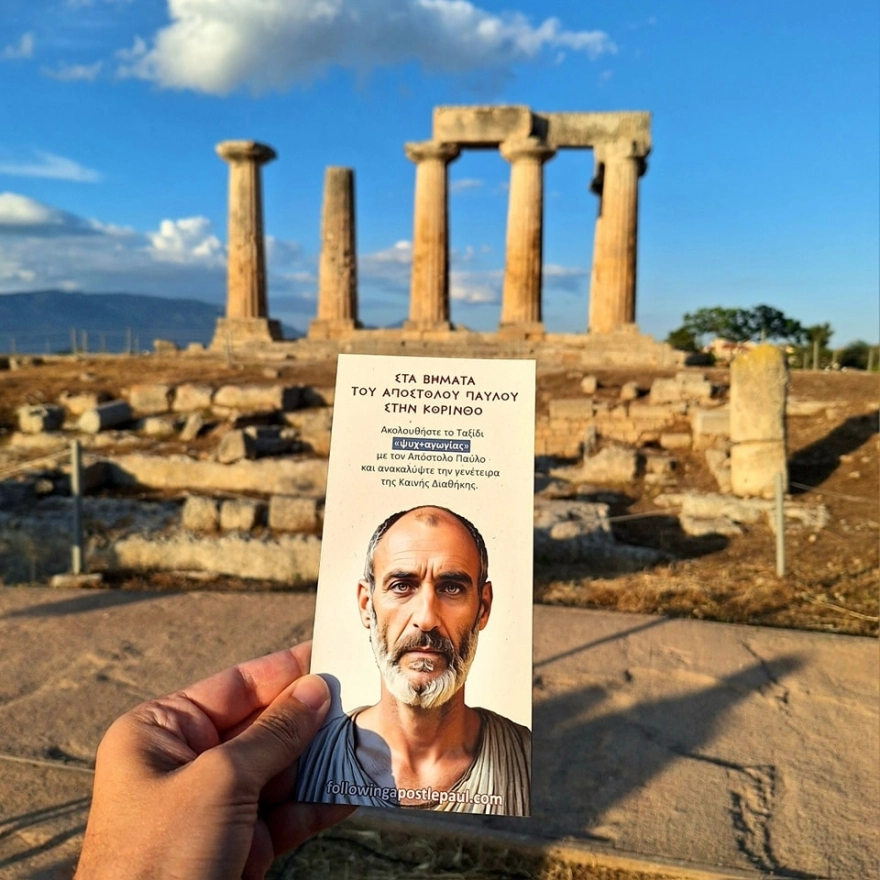Apostolos Pavlos comes to life through an innovative educational project powered by artificial intelligence. Drawing from the texts of his letters, the initiative aims to share his messages with a wider audience. It explores not only the historical era in which he lived but also engages with contemporary issues that resonate with enduring human themes.

The project’s inaugural video, titled Following Apostolos Pavlos, portrays him with a gray beard, brown eyes, and a weathered face. He is dressed in a long white tunic with a brown belt and a cloak, initially shown seated on a wooden ship with cloth sails, traveling from Athens to ancient Corinth. Upon arriving at the port of Kechries, he engages with locals, strolls through the stone streets, and shares foundational Christian teachings.
His depiction was generated using AI, based on icons and descriptions from ancient texts.
“The goal is to connect with the audience”
According to Sotiris Despotis, professor at the Department of Social Theology and Religious Studies at the National and Kapodistrian University of Athens (NKUA), the intent is for Apostolos Pavlos to engage with modern audiences, guiding them through historical sites like Corinth and Philippi while addressing contemporary questions about freedom, health, and happiness. He explained that the project is supported by experts in technology, art, and social media.

Despotis recalled the inspiration for the project, which began about ten years ago when Korean visitors to Athens expressed interest in discussing the Bible. He was intrigued by their journey to learn about Apostolos Pavlos and the New Testament, originally written in Greek.
Increasing Interest from Global Audiences
He noted a growing fascination with Apostolos Pavlos among Americans and Koreans, particularly as traditional academic conferences often struggle to engage the public. “As President of the Patriarchal Missionary Foundation of the Far East, I have observed a strong eagerness in these communities to explore Apostolos Pavlos. His teachings laid the groundwork for individual rights and the value of the human person, as he famously proclaimed that all are one,” he emphasized.

Despotis emphasized that Western culture elevates the individual, particularly in today’s postmodern context. He speculated that if Apostolos Pavlos were alive today, he would likely teach at a social sciences or medical school rather than a theological institution.
He elaborated, “Christianity, as preached by Apostolos Pavlos, encompasses not just the soul’s spiritual journey but also a political perspective on achieving happiness.”
“Apostolos Pavlos’s essential philosophy suggests that societal structures only function when we rearrange the hierarchy—moving away from the domination of one over another, just as Christ exemplified through his sacrifice. Regardless of his academic achievements, Apostolos Pavlos took pride in his scars and vulnerabilities, recognizing that all power-based political systems have a limited lifespan. He champions a society built on love—sacrificial, not exploitative,” he stated.
The project aims to resonate with younger audiences by utilizing social media, showcasing Apostolos Pavlos’s journey through modern technology, connecting his teachings to current needs, and providing content in both Greek and English. The team includes Mr. Despotis serving as scientific advisor, Iphigenia Kapsomeneaki as Research and Development Engineer, Eleftherios Betsis as Visual Artist and AI Lead, and Konstantinos Dimos as Web Designer and Social Media Coordinator.
Recently, the project was introduced in Corinth as part of a memorandum signing among ten Greek municipalities to promote the “Path of Apostolos Pavlos.” The presentation highlighted his journey to Corinth, where he began sharing life lessons while working in Aquila and Priscilla’s tent-making workshop, spreading Christianity and meeting key figures like Phoebe, who played a vital role in the early Christian community.
According to the NKUA professor, the project aims to evolve from a traditional open museum into a living museum that actively engages with the public and keeps his teachings alive.
Ask me anything
Explore related questions

















